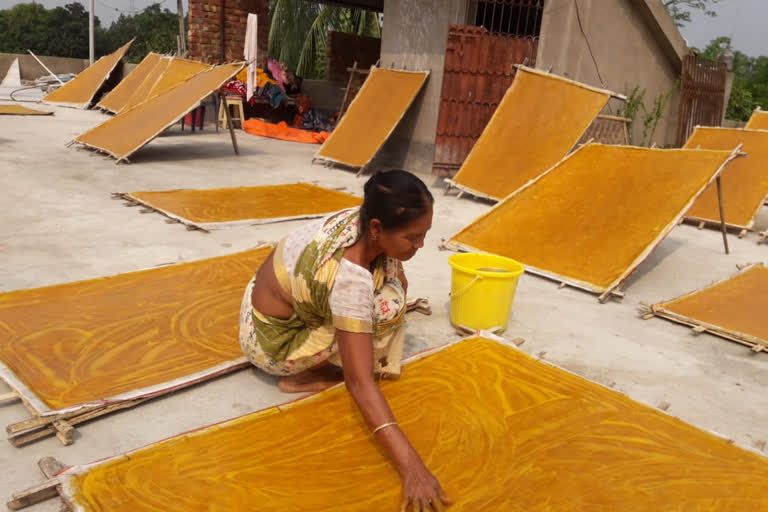Malda (West Bengal): Aamsotto or mango pulp candies are highly sought after in West Bengal. In fact, Gurudev Rabindranath Tagore was the first one to popularize it where such mango pulp candies are mixed with milk and consumed. In fact, these mango pulp candies are also used to prepare different types of Bengali cuisines. The candies are reportedly quite popular among the residents of Buckingham Palace.
However, the makers of these popular candies are mainly the women of Malda district, who continue to be in the unorganized sector. The candy makers feel that the government has let them down without providing assistance in marketing the product, else they could have notched a yearly business of around Rs 100 crore. And if that happened, the women from the districts could have achieved a self-reliant status.
Mango is cultivated on nearly 32,000 hectares of land in Malda, with an annual production of around three lakh metric tonnes. This year the production has been good and the women of the district have got engaged in the production of these mango pulp candies. They feel that proper marketing could have fetched them prices ranging between Rs 700 and Rs 2,000 per kilogram.
Read:Malda's mango farmers at loss despite satisfactory yield
Recently, the state government had given orders to some self-help groups. They have also been provided with production machines, which are inadequate. Yogomaya Das, a member of a self-help group said that sunlight is necessary to make these mango pulp candies. "However, due to cyclone Yaas, our production has been affected this year. Considering the market rate of high-quality mangoes, we have to sell our products at Rs 1,500 to Rs 2,000 a kilogram to make some profit. The machine-made mango pulp candies are not of high quality. So we prefer the traditional production process," he said.
Laksmi Das, 80, who had taught many the production process of these mango pulp candies, said that the production process involves a lot of hard work. "However, we often do not get the remuneration for that hard work. Often we have to hire people. But we do not get the proper price. We take bank loans for production. Had the government helped us it would have been helpful," she said.
